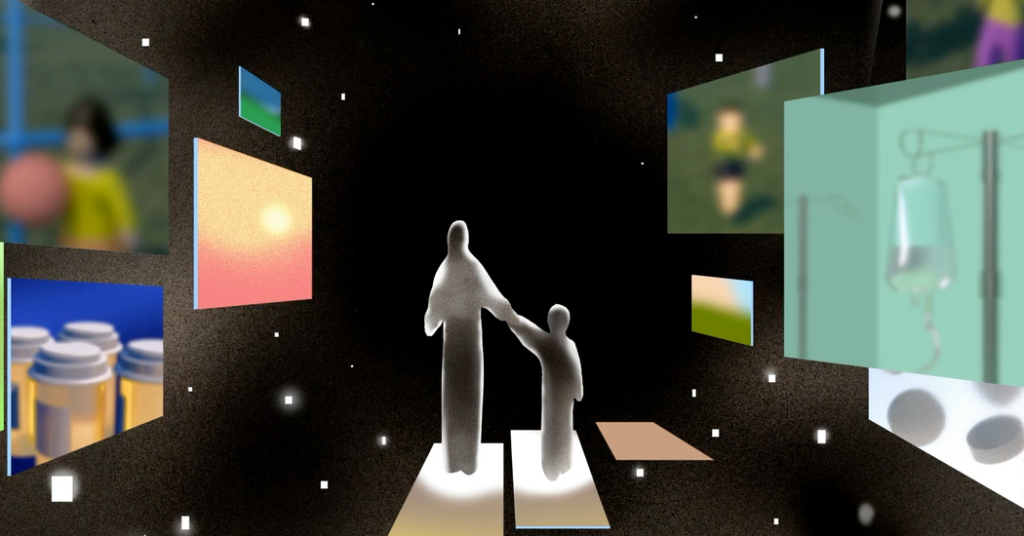Stepping outside the apartment, things became unpredictable. As I secured my son in a carrier on my chest and took him around town, his first interactions with strangers felt intense. His tongue often hung out, which sometimes led people to misinterpret it as a challenge. Some individuals would mimic him by sticking their tongues out in return, only to laugh in confusion when he didn’t withdraw his. As we walked away, they would shout remarks about the size of his tongue. At the park or in the drugstore, strangers commented things like, “Whoa!” or “Is he ill?” When I attempted to submit his passport application at the post office, a worker brusquely returned it, insisting that the government wouldn’t accept a photo of a child with his tongue out. I was filled with anger from these experiences, feeling helpless and unprepared to represent my son to the world. I knew I had to find a way to accept his BWS while also bracing myself for the discomfort it may provoke.
A pediatrician, whom Marc reached out to, suggested looking into a support group for parents. I quickly searched for such groups on Facebook and asked to join right away. When I was granted access, I moved in eagerly. The sheer number of members in these groups — thousands — reassured me. Parents shared their stories, worries, and pictures of their kids, whether they were unwell or thriving. The groups weren’t always straightforwardly comforting. They often included uncertainty and anguish. However, they provided a deeper kind of solace by helping me share the weight of my private concerns.
In the BWS groups, parents shared experiences about how others perceived their children. Each rude comment felt like we were gathering evidence in our hidden journal: a pediatrician once remarked, “She might not make it to Harvard”; a grandmother at the aquarium said, “That baby looks retarded.” Each comment struck directly at my son. Although I hadn’t encountered the term “retarded” much since middle school, it now felt like a constant shadow. Most children with BWS do not have intellectual disabilities, but some kids with larger tongues, like those with Down syndrome, do. The grandmother at the aquarium later apologized, saying, “Oh, sorry you heard me, but your Down syndrome baby is adorable — you know that.” A large tongue is simply a minor variation, but using slurs reminds us of the harsh treatment faced by anyone deemed different.
While BWS is uncommon, social media provided enough connections for me to find a few accounts where parents discussed their children who have it. I decided to follow them and observed their lives where they portrayed our own new reality in a theatrical manner. Although I wasn’t keen on promoting our family so openly, I recognized that we would be noticed, regardless of my feelings. I looked to these BWS influencers for insights on the messages I might unintentionally convey. One parent created apocalyptic-themed treats and animatedly discussed their daughter’s symptoms with message bubbles, showcasing the everyday reality of the condition while elaborating at length. Meanwhile, a father from a couponing family featured his fourth child’s BWS as an inspiring venture, claiming that the diagnosis led them to embrace couponing, stating, “We bought more stuff,” and “We couponed harder,” despite their son’s extended hospital stay.
I followed a mom from Pennsylvania on TikTok known as @largerthanbws, who shared a video in response to the trending prompt “Show your baby as a newborn vs. now.” It began with a shot of a chubby newborn snoozing in someone’s lap, suckling his large tongue like a natural pacifier, just as my son did. Then, in an instant, he transformed into a little boy with a full head of hair and a bright smile. In this TikTok trend, videos showcasing the most dramatic changes gained the most traction, and this clip received over four million views. I scrolled through the comments attached like stubborn gum, filled with heart emojis, laugh emojis, and skull emojis. Many expressed confusion, questioning why these images cropped up in their feeds. One viewer even remarked, “I’d send it back.”


